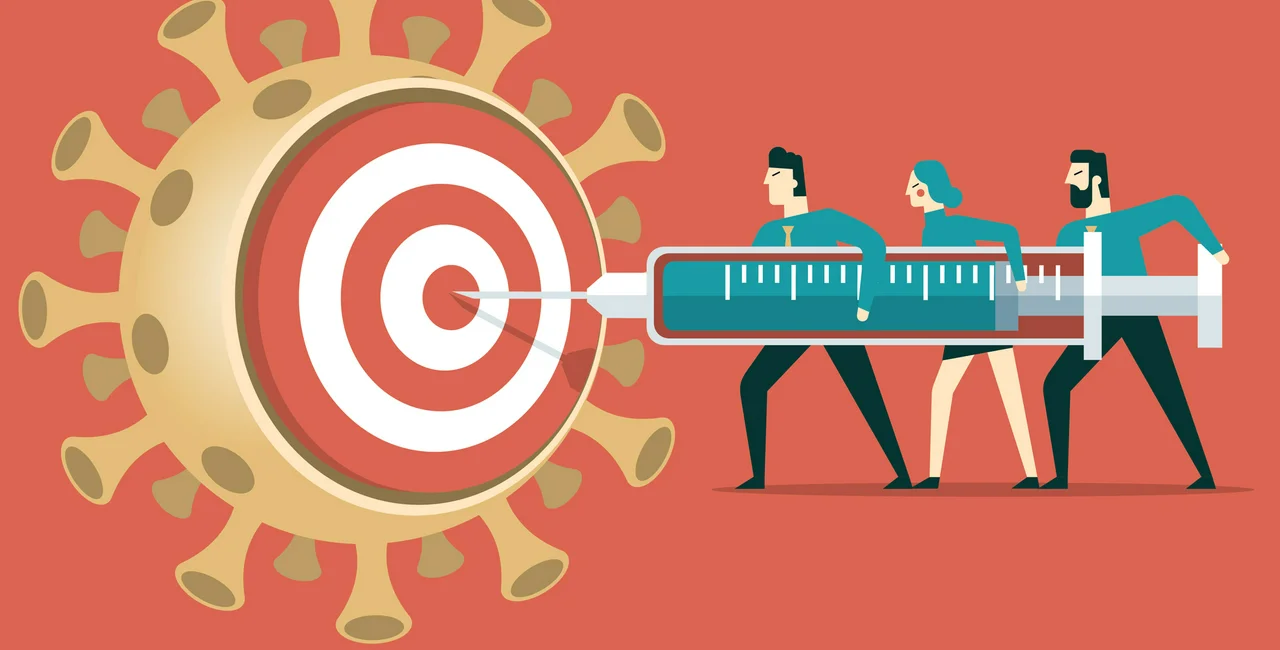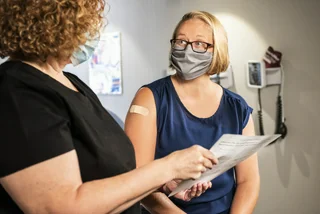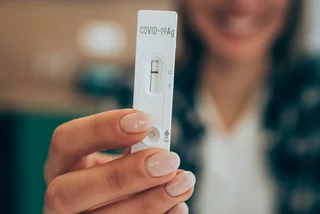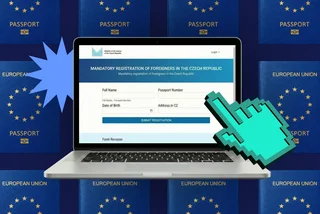Vaccine rollout for the Czech Republic began at the end of December 2020. Initially complicated by slow shipments of vaccines, shortages of needles, and a lack of distribution and vaccination infrastructure, by mid-September 2021, around 11.6 million vaccine doses have been applied, with 5.9 million receiving both doses or the single-dose Janssen vaccine.
With a Czech population of 10.65 million, there is still a long way to go until 75 percent of the population is vaccinated, which is seen as the minimum for herd immunity. When that number is reached, the last of the restrictive measures such as wearing masks on public transit can be repealed, according to Health Minister Adam Vojtěch.
The country set goal of 100,000 vaccinations per day by Easter; but the line wasn't crossed until May 20. The last time that 100,000 doses were given in a single day was July 7. By September, figures were closer to 15,000 doses per day.
In mid-August the Health Ministry announced that a third dose would be an important step in combatting the Delta variant, which currently makes up the largest number of new cases in the Czech Republic. As of Sept. 20, certain people will become eligible to register for a third or booster dose. The walk-in center at Prague's Westfield-Chodov mall began offering the shots Sept. 14, but only to those who are eight months after their second dose.
Due to falling interest in vaccination, many of the large vaccination centers have started to close. The country's largest center at O2 universum closed Sept. 10, and the municipal vaccination center at the Prague Congress Center will close Sept. 17. Smaller centers in hospitals and some walk-in centers such as the one at Prague's Westfield-Chodov mall remain open.
These are some of our readers most frequently asked questions about the Covid-19 vaccination process and key information about how, where, and when you can get vaccinated in the Czech Republic:
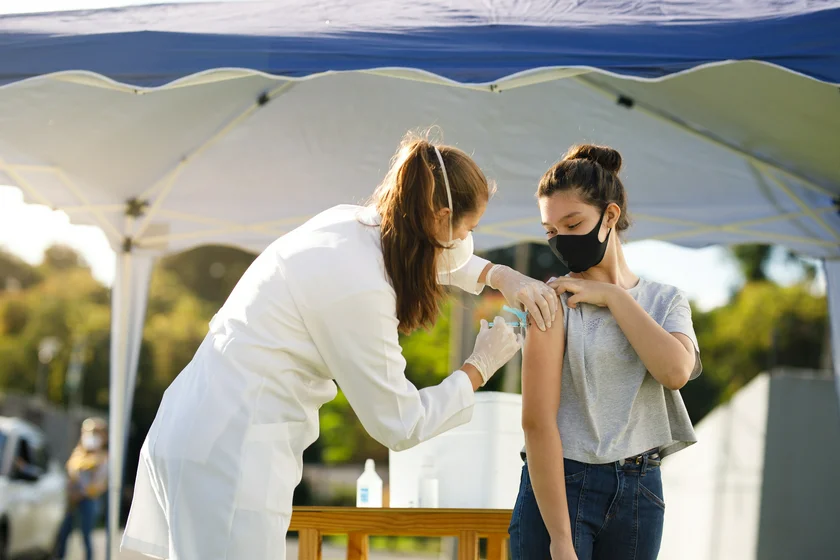
Who is eligible for vaccination in the Czech Republic?
Anyone who is insured by the public health insurance system is eligible for free vaccination. According to VZP, the largest public health insurer in the Czech Republic, anyone with trvalý pobyt (permanent residence) in the Czech Republic is automatically entitled to coverage, and as such should be entitled to vaccination.
People with private insurance such as Pojišťovna VZP, a.s. (PVZP) can get vaccinated at some locations or by their GPs, but have to pay. Their insurance should reimburse them.
There are seven insurance companies in the public system: Všeobecná zdravotní pojišťovna (VZP), Vojenská zdravotní pojišťovna (VoZP), Česká průmyslová zdravotní pojišťovna (ČPZP), Oborová zdravotní pojišťovna (OZP), Zaměstnanecká pojišťovna Škoda (ZPŠ), Zdravotní pojišťovna ministerstva vnitra (ZP MV ČR), RBP, Zdravotní pojišťovna (RBP).
Who is eligible for a vaccine booster shot?
Starting Sept. 20, people over 60 and those at risk because of medical conditions can get a third or booster vaccine shot. Eligible people will receive an SMS telling them they can schedule an appointment either through the Health Ministry's vaccination website or with their own physicians.
The booster shot can be given out no sooner than eight months after completion of the original vaccination – the second dose of Pfizer/BioNTech, Moderna, or AstraZeneca, or the single-shot Janssen vaccine. The booster shot will always be either the mRNA vaccines from Pfizer/BioNTech and Moderna, regardless of what the patient had as an original dose.
As with the original vaccinations, the third dose is not mandatory. Health Minister Adam Vojtěch on Sept. 13 said people who have undergone the Covid-19 infection and are vaccinated against it with two doses need not take the third dose.
What are the roll out dates for my age group?
Vaccination is split into a two-phase system. The first phase is split into two parts with the first part for the elderly, medical staff, and people working in social services. The second part of the first phase, from March until the end of June, saw people with chronic illnesses and elderly people register first for the vaccine, and younger people added as more vaccine is available. Priority vaccination of teachers and of some people with chronic diseases has already ended. The second phase started on June 1, 2021, and is categorized as “voluntary and general vaccination of citizens," and anyone with public health insurance, from one of the seven public insurers (see above), aged 16 and over, can be vaccinated. The vaccination age was later lowered to 12.
Vaccine roll-out dates across age groups
- Dec. 27, 2020: Healthcare workers in hospitals, seniors in homes
- Phase 1A:
- Jan. 15: People over 80
- Jan. 26: Medical workers, students, volunteers
- Feb. 27: Selected teachers and school staff over 55 years old
- Phase 1B:
- March 1: People age 70 to 79; general practitioners can start to vaccinate
- March 24: Higher-category chronic patients regardless of age
- March 28: Priority registration of teachers ends
- April 12: Lower-category chronic patients regardless of age
- April 14: People age 65 to 69
- April 23: People age 60 to 64
- April 28: People age 55 to 59
- April 30: Validity for codes for high-category chronic patients expires
- May 5: People age 50 to 54
- May 15: Validity of codes for low-priority chronic diseases expires
- Phase 2
- June 1: People 16 and over
- July 1: People 12 and over
How do I register to get vaccinated when it's my turn?
Your European Health Insurance Card (EHIC), or Evropský průkaz zdravotního pojištění), contains your insurance number. This number can be used to register via the Central Reservation System.
To log into the Health Ministry reservation system, you need to enter a mobile phone number that will receive a security code. After entering the security code, you fill in your first name, surname, and insurance number.
Next you may choose the vaccination site where you want to have the vaccine administered. If it has free dates, the applicant will receive another PIN code. After entering it, it is possible to book the day and time of vaccination.
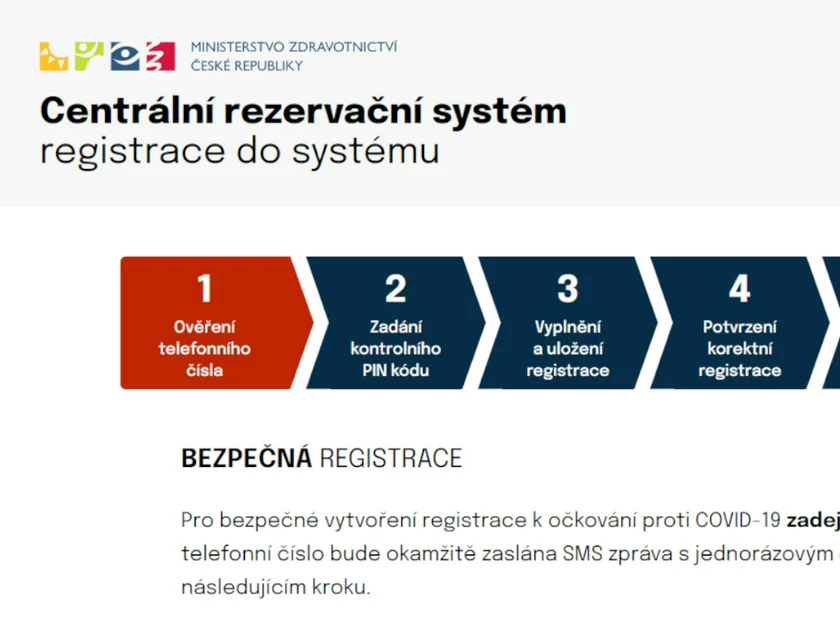
If you are insured in another EU state and have an EHIC, you should fill out an auxiliary registration with one of the seven Czech health insurance companies. Other EU citizens can fill in an S1 form to claim social rights. Details on how to exercise your EU rights for vaccination can be found on the government's Covid portal.
A step-by-step explanation of the registration process is also available in English on the government's Covid portal.
I'm having problems registering. What should I do?
We have received a number of reports from readers having trouble registering because their birth number (rodné číslo) is not the same as their insurance number. Some people have said that entering their birth number instead of their insurance number allowed them to complete the registration. People without a birth number who are still entitled to vaccination should contact their general practitioner.
Other foreigners have reported having issues registering due to their "foreign" name. This issue should now be resolved.
Additional problems have also come up due to patients incorrectly entering their birth numbers in the registration system. Such technical errors can usually be corrected by contacting your GP or calling the 1221 helpline.
How long do I have to wait after registering?
Waiting times to get an appointment at vaccination sites vary according to interest. The number of people waiting for an appointment at individual vaccination centers can be verified on the website of the Institute of Health Information and Statistics (ÚZIS).
Walk-in centers, without the need for an appointment, began operating operating in July, though most require public insurance. There are also mobile vaccination centers in Prague and other parts of the country.
Which vaccines are used in the Czech Republic and can I choose which one I get?
The BioNTech and Pfizer, Moderna, AstraZeneca, and Johnson & Johnson vaccines have all been approved by the State Institute for Drug Control (SÚKL) for use in the Czech Republic. Other vaccines have been developed, but currently SÚKL is only allowing vaccines that have been approved by the European Medicines Agency (EMA) for use in the European Union.
The EMA is currently considering several other vaccines, and approval is expected for the Sanofi Pasteur and Novavax vaccines sometime this year. Other vaccines are also in the process of being evaluated, but the EMA has not set out a time frame for approval.
You cannot currently choose which vaccine to get. Odds are you will get the Pfizer/BioNTech vaccine, as that one so far has been the most widely available, accounting for about three-fourths of the deliveries.
Where do I go to get vaccinated?
Once available to you, registration for a vaccine will take place through the Central Reservation System. You will be able to have the vaccine either with your GP or at a specialized center.
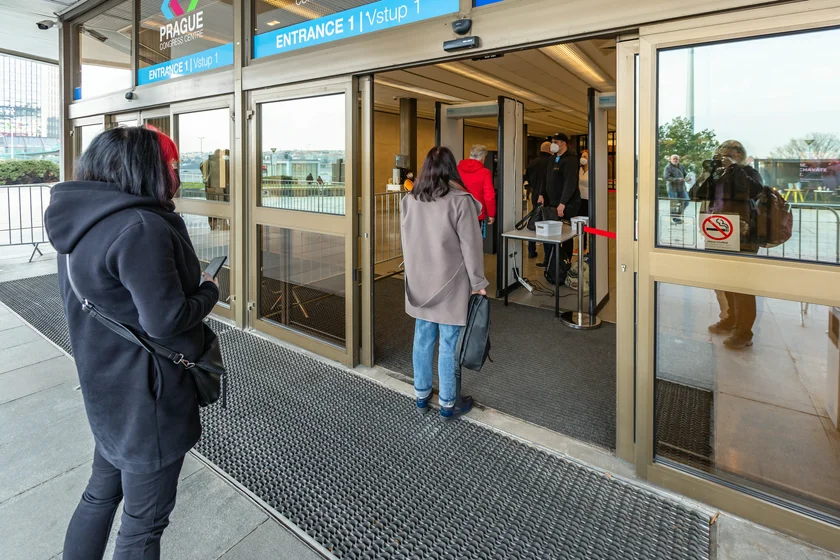
One expat who has been vaccinated said the procedure was fairly straightforward. He has Czech national insurance and had a registration code from his general practitioner due to a chronic condition. After registering online with the code, he received an SMS the same day and was able to make an appointment to get vaccinated weeks two weeks later at General University Hospital at Karlovo náměstí in Prague 2, which is one of the larger centers. The nurse at reception spoke English, as did a woman who showed him where to go and the person who administered the vaccine. “Everyone was friendly and helpful. I had to wait 30 minutes to see if there were side effects,” he said.
Will I need one or two doses and how do I make an appointment for the second dose?
The Pfizer/BioNTech, Moderna, and AstraZeneca vaccines require two doses, while the Johnson & Johnson vaccine requires only one dose. The second doses of Pfizer / BioNTech and Moderna vaccines are now given after 42 days, so that more people can get a first dose. Previously, the second dose of Pfizer/BioNTech vaccine has been after 21 days and Moderna after 28 days. The interval for the second dose of the AstraZeneca vaccine remains at 12 weeks.
You should receive an appointment slot for the second shot as soon as you get your first shot. The health authorities have your mobile number in case it needs to be changed. You can also get a second shot at a walk-in center if you have a problem with your original date. People are asked to cancel their appointments, rather than simply miss them.
The Health Ministry has launched a program for booster shots for those over 60 or with medical conditions that put them at risk, with booster shots starting as of Sept. 20 (see above).
How can I prove I was vaccinated?
The vaccination center issues a certificate after the second dose. A person is considered vaccinated two weeks after the second dose, as it takes time for it to be effective. The certificates can be accessed online and downloaded using either a Czech ID number or your email address and phone number. Current details can be found on the government's Covid portal.
The QR code from the vaccination certificate can be stored on a smartphone using the the Tečka app.
People who receive a third dose can download updated vaccination certificates as soon as the information is entered into the database.
What's the latest on 'vaccine passports'?
The European Union at the start of the summer launched a "Digital Green Certificate" program to allow the safe free movement of citizens within the EU during the pandemic. The scheme will be valid across all EU countries and will be free of charge. It will be used for people who have either been vaccinated against Covid-19, received a negative test result, or recovered from Covid-19.
In the Czech Republic, the EU certificate is also the Tečka app (see above).
The Czech Ministry of Foreign Affairs still maintains a list of travel restrictions, which change on a constant basis. Vaccinated people are exempted from some but not all restrictions.
Useful resources
- Czech vaccination registration system registrace.mzcr.cz
- Government Covid-19 portal covid.gov.cz/en
- Ministry of Health Covid helpline koronavirus.mzcr.cz/ockovani-proti-covid-19/
- Policy for vaccination of foreign nationals https://koronavirus.mzcr.cz/en/questions-and-answers-vaccination-for-self-payers/
This article will be updated over time to reflect changes in the registration process or should any changes be made in the future. Every effort has been made to verify the accuracy of this information at press time; however, due to the continuously changing nature of Covid information, we ask that you always verify any uncertainty directly with your GP or the Ministry of Health.












 Reading time: 9 minutes
Reading time: 9 minutes 